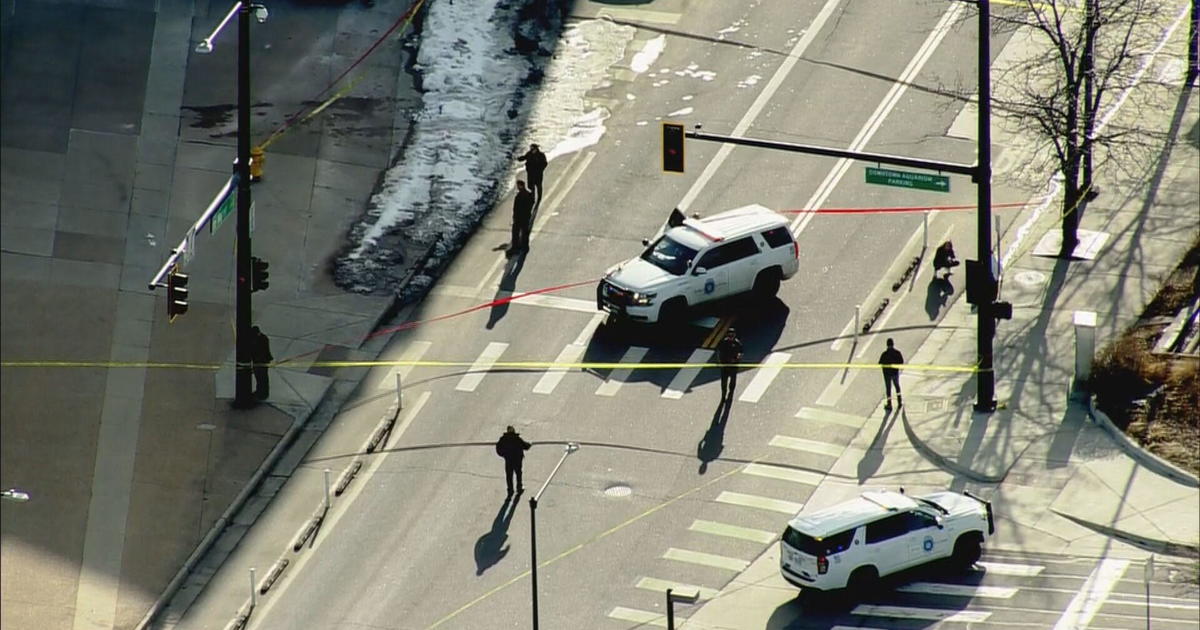New official name for 14er closest to Denver is Mount Blue Sky, a "huge step" for Colorado's Indigenous community
Mount Evans no more. The name of the 14,000 foot mountain closest to Denver is now Mount Blue Sky, inspired by a name for the Arapaho tribal members, known as the Blue Sky People.
The U.S. Board of Geographic Names voted 15-1 Friday to rename the mountain, ending over 120 years of it being formally named for Colorado's former territorial governor John Evans, who was pressured to resign from office for his role in the Sand Creek Massacre.
It was a victory for a consortium of Native American tribes as well as organizations like the Wilderness Society.
"It is a huge step, not only for the Cheyenne and Arapaho people, but also for the Ute Mountain Tribe, Southern Ute Tribe, Northern Arapaho Tribe and other allies who worked diligently to being the healing process, bringing honor to a monumental and majestic mountain," said Cheyenne and Arapaho Tribes governor Reggie Wassana.
There were six formal proposals made to rename Mount Evans, including Mount Cheyenne-Arapaho, which the Northern Cheyenne favored. Earlier this year a representative of the tribe filed an objection to the name Mount Blue Sky, which is a name used for a renewal of life ceremony which some tribal members believe is too sacred to be commonly repeated. But the board voted with the consortium.
"I grew up listening to the conversations my grandparents had and I knew at a young age who John Evans was," said MorningStar Jones, a Colorado native and member of the Northern Cheyenne Tribe who favored the change to Mount Blue Sky. Tribal members point out that the name of the peak had already been changed years ago -- to Evans.
"There have been countless Cheyenne and Arapahoe people who have been opposed since 1895 to the name change and those conversations never stopped in our homes," said MorningStar Jones.
The mountain bore different names from different tribes and tribal members, though what they were are lost to history.
John Evans was linked closely to the Sand Creek Massacre, in which Arapaho and Cheyenne people were attacked in southeast Colorado on November 29, 1864. Approximately 230 people were killed, many as they fled. The majority were women and children.
Evans issued a proclamation prior to the Sand Creek incident: "...Kill and destroy, as enemies of the country, wherever they may be found, all such hostile Indians."
But, according to a 2014 University of Denver study, Evans's expressions about Native Americans used "increasingly inflammatory language," and blurred citizens' distinctions between "hostile Indians" and Native Americans in general. This, as stated in the DU study, created an atmosphere that allowed the massacre to happen.
"In his role as governor (but without the legal authority to do so), Evans authorized the kind of indiscriminate violence against Native people that would invariably lead to the slaughter of noncombatants."
Evans, incidentally, founded DU.
Many of Evans' descendants favored the change away from Evans, although some opposed it. Colorado's Gov. Jared Polis signed off on the change to Mount Blue Sky before it went to the federal government's naming board for approval, noting in a letter to the board's executive secretary, "Colonel Chivington celebrated in Denver, parading the deceased bodies through the streets while Governor Evans praised and decorated Chivington and his men for their 'valor in subduing the savages.'"
The name Mount Evans was first applied to the peak in the 1870s and first published on U.S. Geological Survey topographic maps in 1903, according to research compiled for the national naming board.
Polis added that the state is not erasing the "complicated" history of Evans, who helped found the University of Denver and Northwestern University in Evanston, Illinois. Evans also played a role in bringing the railroad to Denver, opposed slavery and had a close relationship with Abraham Lincoln, Polis noted.
Studies by Northwestern and the University of Denver published in 2014 also recognized Evans' positive contributions but determined that even though he was not directly involved in the Sand Creek Massacre, he bore some responsibility.
"Evans abrogated his duties as superintendent, fanned the flames of war when he could have dampened them, cultivated an unusually interdependent relationship with the military, and rejected clear opportunities to engage in peaceful negotiations with the Native peoples under his jurisdiction," according to the DU study.
The move comes after the renaming of another peak near Mount Blue Sky Mestaa'ėhehe Mountain. It bears the name of an influential translator, also known as Owl Woman, who mediated between Native Americans and white traders and soldiers in what is now southern Colorado.
After the vote, Cheyenne and Arapaho governor Wassana urged Congress to change the name of the Mount Evans Wilderness area that surrounds the mountain to the Blue Sky Wilderness Area. The Wilderness Society urged that the name be changed from Evans as well.
To MorningStar Jones the move to remove the Evans name is far from removing history.
"So we're not erasing history here we're actually telling history of what actually happened."
In her life she has never travelled to Mount Evans, because of its name.
"I've never been up to that mountain and so that's going to change," she said. "At least one or two times a summer me and my children will go up there and start a family tradition because I've never been up there."





